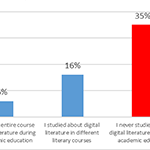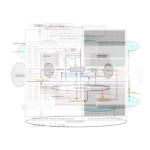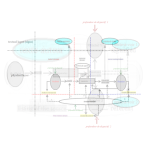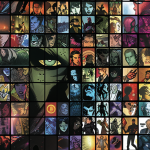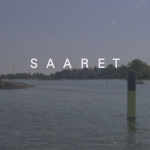2026
Stuart Moulthrop's meditation on AI artistic production explores the pareidolia at play in human interactions with generative models while arguing, via Wim Wenders' Until the End of the World (1991) and Greta Gerwig's Barbie (2023), for a loving approach to humanity's newest tools.
2025
Eman Younis and Hisham Jubran's study investigates Arab university students' exposure to digital literature and their attitudes toward it. In doing so, they discover students feel the inclusion of digital literature in university-level literature courses should be a scientific necessity and that its absence in the curriculum compromises their professional development.
Austin Anderson applies a videogame formalism methodology to Dark Souls and argues that the game's various ludic-textual structures challenge player expectations, encouraging them to engage with the game's multiplayer systems and explore fan-made paratextual materials. By defining the player's movement between these structures as an act of hyperlinking which creates a networked community, Anderson identifies these as key characteristics of what he calls the 'networked hyperlinked videogame'.
Sarah Whitcomb Laiola and Richard Snyder share their experience of cataloguing Instagram 'zine Filter for a travelling exhibition with The NEXT, the Electronic Literature Organisation's museum, library, and preservation space. Arguing that platforms are not merely tools for distribution but shape the very literariness of a work, Laiola and Snyder suggest that e-lit archival practices must evolve to recognize and account for the integral role contemporary social media platforms can play.
Tuuli Hongisto explores the problems of cyborg authorship through the presentation of ChatGPT as a co-author of literary works on Amazon. Rather than shying away from admitting that an AI took part in the writing process, these authors position ChatGPT and other LLM's as authors with their own rights, rather than tools.
Experimental storyteller and digital artist Mez Breeze explores the liminal spaces of The Backrooms, a found footage web series which is based on a popular creepypasta of the same name. In doing so, Breeze confronts the feelings of alienation and predation inherent to late-stage capitalist society.
Part 2 of Philippe Bootz's exploration of the procedural mode in digital literature, continued from part 1.
2024
Phillipe Bootz defines and situates a set of artifacts, devices, material components and human groups that are in contact with earlier procedural "dispositifs." The procedural model, in Bootz's 30 year long research, analyses, theoretical frameworks and observations, expressly distinguishes human beings from material components. In opposition to artificial/human proposals such as the trans-human or the cyborg. The dispositif, in Bootz's presentation, only concerns the physical world. It does not contain signs, is not concerned with literature or art. And neither are individuals, within the procedural model, considered for themselves. They are actors at a given moment. Their positions are characterized by their power to directly act on the artifacts and objects of the dispositif.
Like so many generic literary reconstructions, comics are now being transformed into information -- a process that, for postdoctoral scholar Ilan Manouach, is concomitant with the expansion of tools and services in the field of generative AI. Like so many AI emergences (and emergencies), this one poses important challenges to the comics industry and the careers of comics professionals.
Can ChatGPT or other Chatbot interfaces really write anything better than a feeble imitation of postmodern cut-up techniques? Polina and James Mackay think so, and they offer some reasons for holding onto a human, guiding intelligence in the writing process.
With this brief look at Large Language Model surrealism, Nick Montfort locates and identifies "the id of the internet, of publishing, of podcasting."
Elliot Yates examines Gaddis’s first corporate writing assignment, with the company Textron, which seems to coincide directly with his first conception of the plot for J R. Textron was one of the first US corporations to explicitly pursue conglomerate “diversification” through buying up seemingly unrelated businesses, and Yates shows how this not only helped generate the plot of J R, but functions as a key to understanding its formal design.
David Ting excavates the archived compositional history of Agapē Agape to test what we can learn from the marginal annotations in Gaddis’s working library, focusing on his copy of Susan Stebbing’s Philosophy and the Physicists. Ting finds Gaddis testing his own ideas against those of Stebbing and her sources, while making outward connections between this technical material and his literary reading in Plato and Faust. Illuminating the novel’s chronological evolution, Ting also provides us a case study in tracking how authors use their reading as a “means of invention.”
After noting how J R was a reflection of postmodern society and antiheroic traditions in America in the 1970s, Lalita Kashoba Mohan signals a similar postmodern turn in her homeland, India, and other countries "whose economic development is now following America’s earlier path."
This article discusses the Environmental Audiotour—a work by Parikka, Patelli, and Wong through which art and technology intersect with environmental issues at the Helsinki Biennial 2023. The artist-researchers explore topics like rising sea levels affecting islands, how humans impact the environment, and ways to visualize environmental data. Overall, the authors use creative methods to understand and address environmental problems in today's digital world.
Thank you to the ELO 2023 conference, especially to its organizers, Daniela Maduro, Manuel Portela, Rui Torres, and Alex Saum-Pascual, who first hosted Professor Jussi Parikka as a keynote speaker at their conference in Coimbra, Portugal. This resulting publication is a collaboration with ELO 2023 and will also appear in their forthcoming conference publications.
Rochelle Gold brings Gaddis’s early critique of mid-century capitalism into contact with current criticism by Alan Liu and others, who suggest that humanists must bring their own questions, interests, and values to the table, rather than acquiescing to the economic logic of post-industrialism.
Lisa Siraganian, the J. R. Herbert Boone Chair in Humanities in the Department of Comparative Thought and Literature at Johns Hopkins University, applies her expertise in legal theory to Gaddis’s penultimate novel. Following discussions on business law and the controversial notion of corporate personhood, Siraganian reads Gaddis's fourth novel to explore how a business-dominated legal culture transforms our conceptions and narratives of the individual person.
Written by William Gaddis in the mid-1940s, “Faire Exchange No Robbery” is a short, mock-Elizabethan play in verse, about early poetry anthologies and the death of Christopher Marlowe. Jeffrey Severs brings this unpublished document to light, finding in it the germ of Gaddis’s career-long interests in art’s relationship to commerce, and in the significance of contracts.
Jack Williams, after noting how the "depiction of U.S. imperialism in The Recognitions has received scant critical attention," gathers a selection of concrete descriptions in Gaddis's first novel of the "built environments" in the New York City and Paris sections, then demonstrates how these settings reflect and expand on the novel’s multi-pronged critique of postwar consumer culture.

